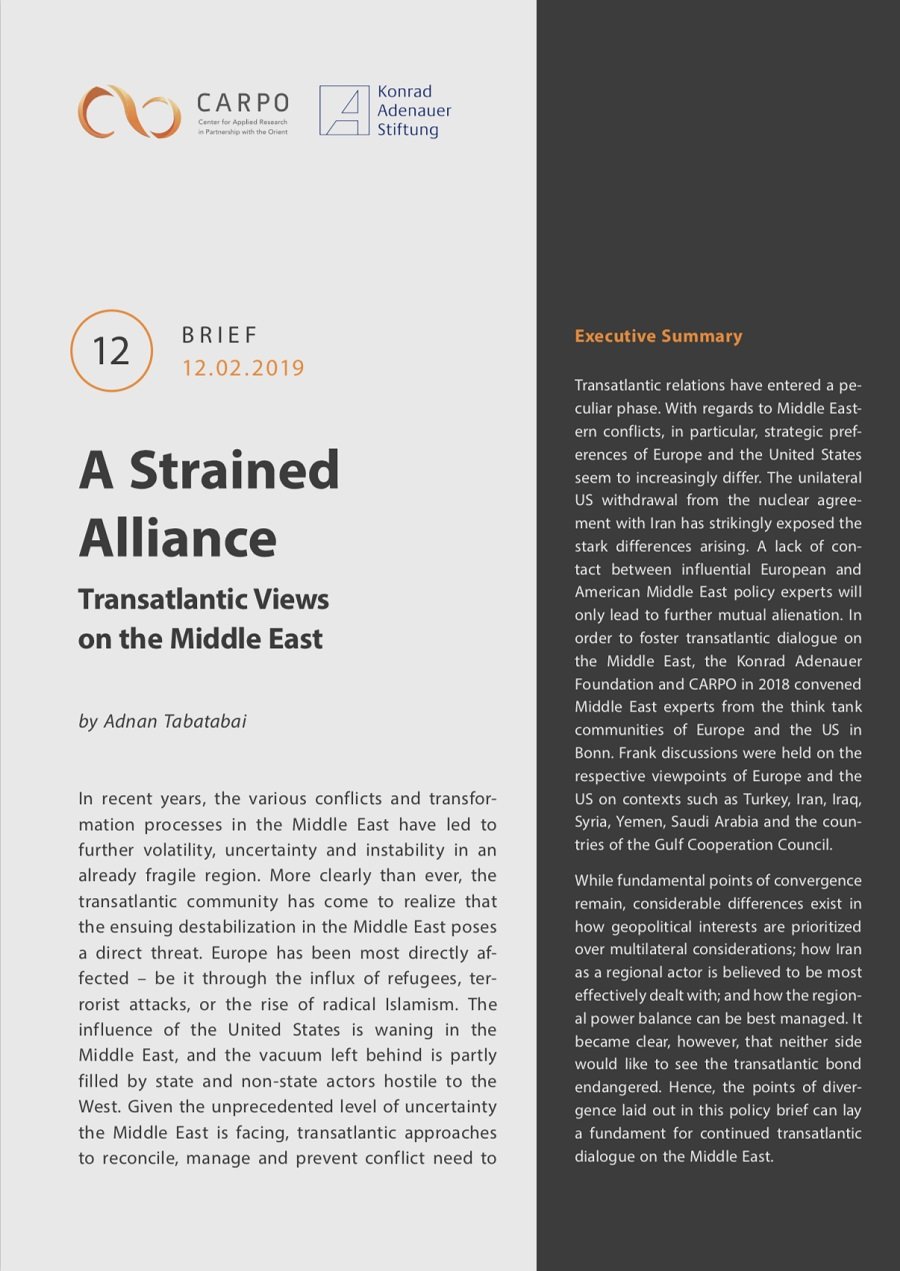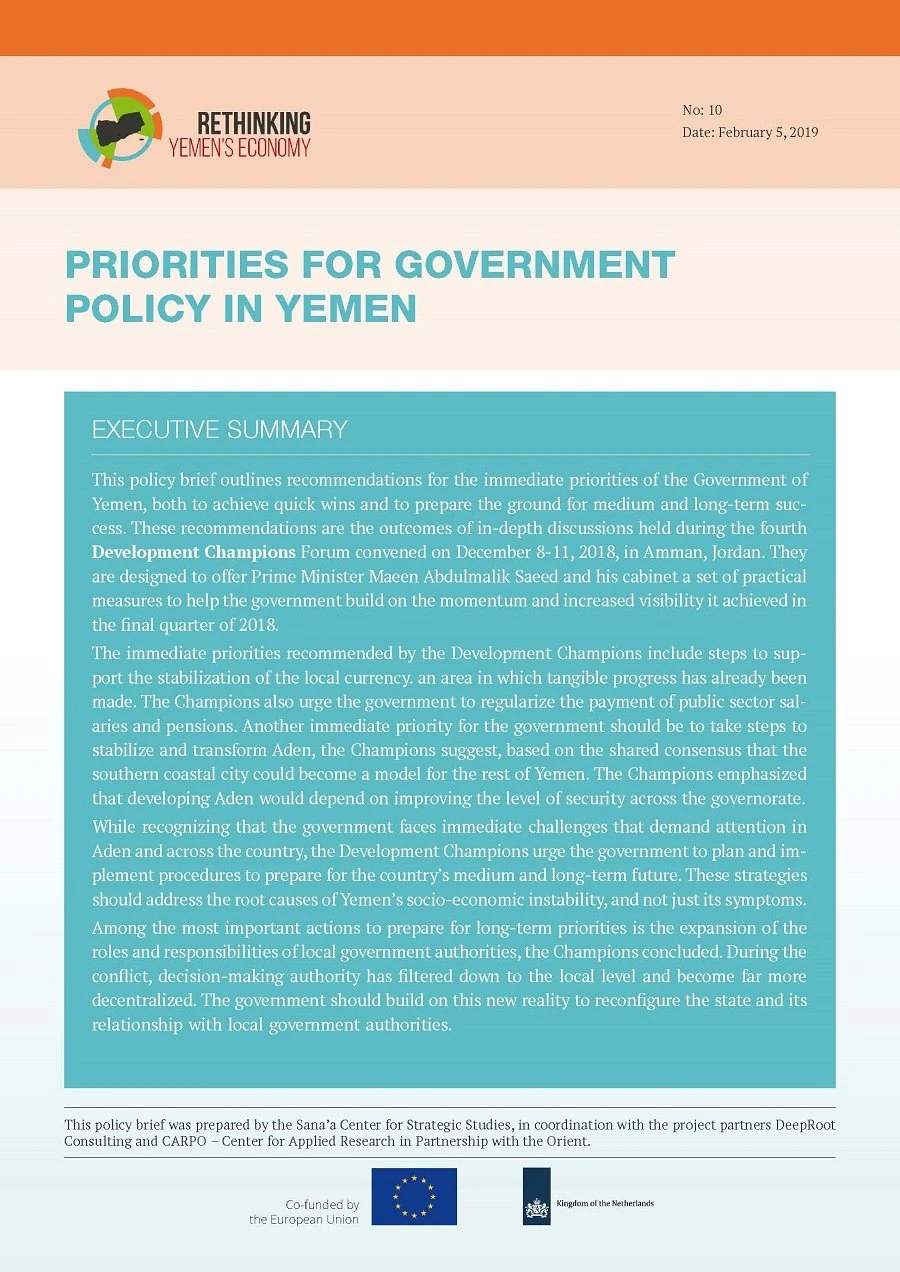Beginning of December 2019, CARPO celebrated its fifth anniversary. So in addition to a look back at our activities of the past year, in this Annual Report we will also reflect on five years of CARPO’s existence. And we do look back in pride on our evolution since we first set out! When we, the members of CARPO’s Executive […]
Read more...Category: Publications
Economic Priorities for a Sustainable Peace Agreement in Yemen
The sustainability of a peace agreement in Yemen will, amongst others, depend on two critical insights: First, in a conflict that is largely over access to resources, the issues of distribution and control of those resources can make or break peace. Second, where peace agreements lack provisions that create overall economic stability, warfare can resume […]
Read more...The Role of the Private Sector in Peacebuilding in Yemen
by Tarek Barakat, Ali al-Jarbani and Laurent Bonnefoy This Brief analyzes the state of the private sector in Yemen during the ongoing war and explores its potential to contribute to the country’s peace requirements. It presents challenges entrepreneurs face and the potential contribution of these in sectors that are central to the construction and sustainability […]
Read more...The Role of Civil Society in Peacebuilding in Yemen
by Abdulkarim Qassim, Loay Amin, Mareike Transfeld and Ewa Strzelecka The current political and economic conditions in Yemen make it difficult for CSOs to continue functioning on an effective level, while a lack of human and organizational capacity are hampering project results. Nevertheless, Yemeni CSOs contribute to peace requirements in various sectors and remain an […]
Read more...Microfinance in Yemen. An Overview of Challenges and Opportunities
This White Paper explores the historic development of Yemen’s microfinance industry and its players, as well as the impacts of the ongoing conflict. This analysis is followed by recommendations that address four specific areas – capacity building, financing, program design and research – to help create a more conducive operating environment for microfinance overall. The […]
Read more...The Role of Youth in Peacebuilding in Yemen
by Maged al-Kholidy, Yazeed al-Jeddawy and Kate Nevens Despite its major transformative potential, local level youth work is often overlooked by mainstream international discourses on national level peace processes and violent conflict. This Brief sheds light on young peoples’ activism before and during the war, the challenges they are currently facing, their visions for the […]
Read more...The Role of the Media in Peacebuilding in Yemen
by Fatima Saleh, Scott Preston and Mareike Transfeld The increased political capture of the Yemeni media since 2014 has reinforced diverging political discourses and has contributed to polarization across society and to political fragmentation. Practitioners face steep challenges in composing professional stories. Journalists are subject to harassment, intimidation, abduction and violence. Yet, Yemeni journalists remain […]
Read more...Developing Human Capital
Human capital in Yemen has long been at the lowest levels across all indicators due to the successive conflicts in the country and the weak investment in human development. Over five years since the onset of the ongoing war in Yemen, human capital accumulation has continued to regress. This video emphasizes that human capital is […]
Read more...China’s Strategy in the Persian Gulf. A Balancing Act between Riyadh and Tehran [in German]
by Julia Gurol and Jacopo Scita This Brief discusses the repercussions of geopolitical developments on China’s strategy in the Persian Gulf. It is argued that China is pursuing strategic hedging by attempting a risky political balancing act in order to prepare for a possible escalation. This Brief is a slightly edited German translation of the […]
Read more...Developing Yemen’s Fishing Industry
This policy brief summarizes discussions regarding Yemen’s fishing industry at a ‘Rethinking Yemen’s Economy’ workshop held in al-Mukalla, Yemen, on November 26-28, 2019. The workshop participants, among them numerous stakeholders in the fishing industry from across Yemen, agreed that given the inability of the Ministry of Fish Wealth to carry out its basic institutional functions […]
Read more...Reforming the Business and Investment Climate
The surest means of laying the foundations for private sector recovery in Yemen, and indeed recovery for the country overall, is to end the ongoing conflict and reunify public institutions and governance mechanisms. While the conflict is ongoing, however, there are still practical, realistic steps national and international stakeholders can take to support the Yemeni […]
Read more...Restructuring Public Finances in Yemen
Even before the current conflict, Yemen’s public finances suffered from an overdependence on energy exports, one of the lowest tax collection rates in the world, and chronic budget and balance of payments deficits. The ongoing conflict has complicated an already dire situation. Energy exports have almost collapsed, while general economic and state collapse saw a […]
Read more...The Role of Women in Peacebuilding in Yemen
by Iman al-Gawfi, Bilkis Zabara and Stacey Philbrick Yadav Yemeni women are laying foundations for sustainable peace through everyday practices that have the capacity to help transform the landscape of women’s rights in the post-war period. Wider recognition of women’s paid and unpaid work in wartime, and the conditions that enable it, could improve the […]
Read more...Bar’a as an Expression of Liminality Ritual Performance, Identity and Conflict Prevention in the Highlands of Yemen
by Ulrike Stohrer This Study focuses on the performative genre barʿa, which is one of the most important means of nonverbal communication between social groups in Yemen. As such, this Study deals with a cultural practice of the tribal population in the Yemeni highlands that also has important significance for Yemeni society as a whole […]
Read more...Developing Human Capital
This Policy Brief summarizes discussions regarding Yemen’s human capital at a ‘Rethinking Yemen’s Economy’ workshop held in Amman, Jordan, on August 24-25, 2019. The workshop participants agreed that many of the obstacles to improving Yemen’s human capital were present prior to the current conflict. This Policy Brief thus recommends: countrywide population surveys; more funding of […]
Read more...Corruption in Yemen
Corruption, or the abuse of power for private gain, has been deeply entrenched in the Yemeni political economy for decades. Over the course of the ongoing conflict, however, state capture in Yemen has become far more complex, and new patronage networks have emerged with interests that have extended across national borders and crossed the frontlines […]
Read more...Private Sector in Yemen
The impact of the conflict on Yemen’s economy and private sector have been calamitous, and, as a result, the economic output has dropped precipitously since its onset. The increased costs for businesses have been spurred by a lack of security and a scarcity of business inputs, while a loss of customer base and demand as […]
Read more...The Essential Role of Remittances in Mitigating Economic Collapse
Scarce opportunities to earn a viable livelihood in Yemen continue to drive hundreds of thousands of Yemenis abroad in search of work, especially to neighboring countries. Over time, remittances from Yemeni expatriates have become one of the most important sources of foreign currency inflows into Yemen and have played an essential role in mitigating economic […]
Read more...Projecting Power Westwards. China’s Maritime Strategy in the Arabian Sea and its Potential Ramifications for the Region
by Julia Gurol & Parisa Shahmohammadi This Study looks at China’s new maritime strategy in the Arabian Sea within the framework of the Maritime Silk Road and analyses its possible implications for the adjacent countries. The main focus of the analysis is placed on the most critical sea lines of communication which connect China with […]
Read more...Generating New Employment Opportunities II: Labor Force, Labor Market and Expatriates
Decades of political instability and cyclical armed conflict have curtailed Yemen’s economic growth, job creation and labor productivity. Sharing a collective sense of urgency to address Yemen’s worsening economic and humanitarian crises, 22 of Yemen’s leading socioeconomic experts convened as part of the Rethinking Yemen’s Economy initiative to discuss job creation in Yemen and develop […]
Read more...Transitional Government in Post-Conflict Yemen
To maximize the effectiveness of governance in post-conflict Yemen, two options stand out for the composition of an immediate post-conflict government to lead a transitional period in the country. First, a consensus government with cabinet seats divided among the key Yemeni political factions. Second, a technocratic caretaker government appointed by a consensus prime minister. In […]
Read more...Restructuring Public Finances in Yemen
This Policy Brief addresses the issue of public finances in Yemen, which have long suffered from an overdependence on energy exports, one of the lowest tax collection rates in the world, and chronic budget and balance of payments deficits. With the intensification of the conflict in 2015, energy exports and foreign grants were frozen, while […]
Read more...Generating New Employment Opportunities I: Yemeni Labour Market
Decades of political instability and cyclical armed conflict have curtailed Yemen’s economic growth, job creation and labor productivity. Before the current conflict, much of the country’s working population was engaged in unskilled labor, working in rural agriculture or informally employed in small businesses. Sharing a collective sense of urgency to address Yemen’s worsening economic and […]
Read more...The Development Champions
The Development Champions are a group of senior Yemeni experts and professionals from various backgrounds and with established expertise in development and economy. The Development Champions discuss priorities for intervention by national and international policymakers, issue respective recommendations and are thus at the heart of the Rethinking Yemen’s Economy initiative. The aim of this initiative […]
Read more...The Road to Reconstruction
The ongoing conflict in Yemen has imposed grievous costs on Yemenis, damaging lives, property, and infrastructure, and collapsing the country’s already fragile economy. And yet the conflict will eventually subside. Previous reconstruction efforts in Yemen following conflict or natural disaster have suffered from lack of coordination with and unrealistic expectations from international donors, as well […]
Read more...Civil Servant Salaries
The rising wage bill for the public sector is a timebomb that threatens future economic stability in Yemen. The public sector is one of the main employers in Yemen and accounted for 32% of total government spending on average during the period from 2001 to 2014. This very heavy burden on public expenditure calls for […]
Read more...The Need to Reform the Public Sector Wage Bill
This Policy Brief addresses the issue of Yemen’s bloated public sector. Amid consistently large budget deficits, the inflated public sector wage bill is fiscally unsustainable and threatens to undermine economic recovery and future stability in Yemen. Recognizing the multiple challenges of reforming the public sector, even in a stable country, the recommendations brought forward in this […]
Read more...Priorities for Private Sector Recovery in Yemen
This Policy Brief addresses the need for private sector recovery in Yemen and gives recommendations for the improvement of the overall business and investment climate. While the private sector has shown a far greater degree of resilience than the public sector and in many cases stepped in to replace government services, its situation – and […]
Read more...Local Governance in Yemen
Local councils are among Yemen’s most important state institutions. Responsible for providing basic public services to millions of Yemenis, local councils represent official governance and the Yemeni state for vast swathes of the population. The intensification of the conflict since March 2015, however, has undermined the councils’ ability to operate effectively in most areas of […]
Read more...Transitional Government in Post-Conflict Yemen
This Policy Brief offers recommendations to maximize the effectiveness of governance in post-conflict Yemen – whatever the composition or structure of the government. It presents three case studies on government models previously introduced in Yemen, Tunisia and Lebanon after periods of instability. These case studies offer useful lessons on the challenges, risks and opportunities of […]
Read more...Tafahum – An Ideational Fundament for West Asia and the Arabian Peninsula
by Christian Koch and Adnan Tabatabai This CARPO Brief discusses the need to construct ideational pillars for a tafahum, or common understanding, of how to define a process towards regional integration and a shared security architecture for West Asia and the Arabian Peninsula (WAAP). This is an evolutionary process, which begins with the essential building […]
Read more...The Repercussions of War on Women in the Yemeni Workforce
This Policy Brief sheds light on the impact of the ongoing conflict in Yemen on women’s participation in the workforce. It finds that the protracted conflict has, on the one hand, pushed more women into the workforce and new labor markets, in some cases into professions previously dominated by men. On the other hand, the […]
Read more...The Essential Role of Remittances in Mitigating Economic Collapse
This White Paper addresses the impact of Saudi Arabia’s increasingly restrictive handling of its expatriate workforce on the economy in Yemen. The kingdom’s policies, which have forced tens of thousands of Yemenis to return home, have resulted in a dramatic loss of income from remittances for their families in Yemen at a time when the […]
Read more...Turning Interdependence into Complementary Action
by Julia Gurol & Parisa Shahmohammadi This CARPO Report lays out what the role of China could be in the quest to safeguard the JCPOA. It outlines the viewpoints of Brussels and Beijing, and sketches converging and diverging interests and their influence on respective policy choices. It assesses two scenarios for the future of the […]
Read more...Reconstruction and Recovery in Yemen
This Policy Brief brings forward the results of in-depth discussions held by the Development Champions with the aim of developing recommendations and guidelines to ensure the reconstruction and recovery of Yemen is a comprehensive, effective process that has a long-term positive impact. The Champions’ recommendations include measures to link immediate humanitarian interventions to Yemen’s long-term […]
Read more...Economic Confidence-Building Measures – Civil Servant Salaries
This Policy Brief brings forward crucial recommendations resulting out of the fourth Development Champions Forum in Amman, held in December 2018. The Development Champions recommend that the Yemeni government resumes salary payments to all civil servants working in the administrative apparatus of the state registered in the Ministry of Civil Service database of 2014 across […]
Read more...Understanding Peace Requirements in Yemen
by Mareike Transfeld & Marie-Christine Heinze This CARPO Report serves as a background paper to five short studies Yemeni-international researcher tandems will develop in the course of 2019. It places a particular focus on ‘peace requirements’, a term that seeks to draw attention to the manifold challenges to establishing stability and building peace in Yemen […]
Read more...Back to Crisis Mode. Iran’s Quest to Manage Internal Crises and External Pressures [in German]
by Adnan Tabatabai This CARPO Report is dedicated to an analytical discussion about how the ongoing crisis surrounding the nuclear agreement between the E3/EU+3 and Iran is affecting the foreign policy conduct of the Islamic Republic, its internal power balance, as well as the future of state-society relations in Iran. This is the German translation […]
Read more...A Strained Alliance. Transatlantic Views on the Middle East
by Adnan Tabatabai This CARPO Brief provides the readers with a reflection of the discussions held during a workshop organized by the Konrad Adenauer Foundation (KAS) and CARPO, which brought together policy experts from the think tank communities of Europe and the United States. The focus of the discussions was on specific country contexts (Turkey, […]
Read more...Priorities for Government Policy in Yemen
This Policy Brief outlines recommendations for the immediate priorities of the Government of Yemen, both to achieve quick wins and to prepare the ground for medium and long-term success. These recommendations are the outcomes of in-depth discussions held during the fourth Development Champions Forum convened on 8-11 December 2018 in Amman, Jordan. They are designed to […]
Read more...




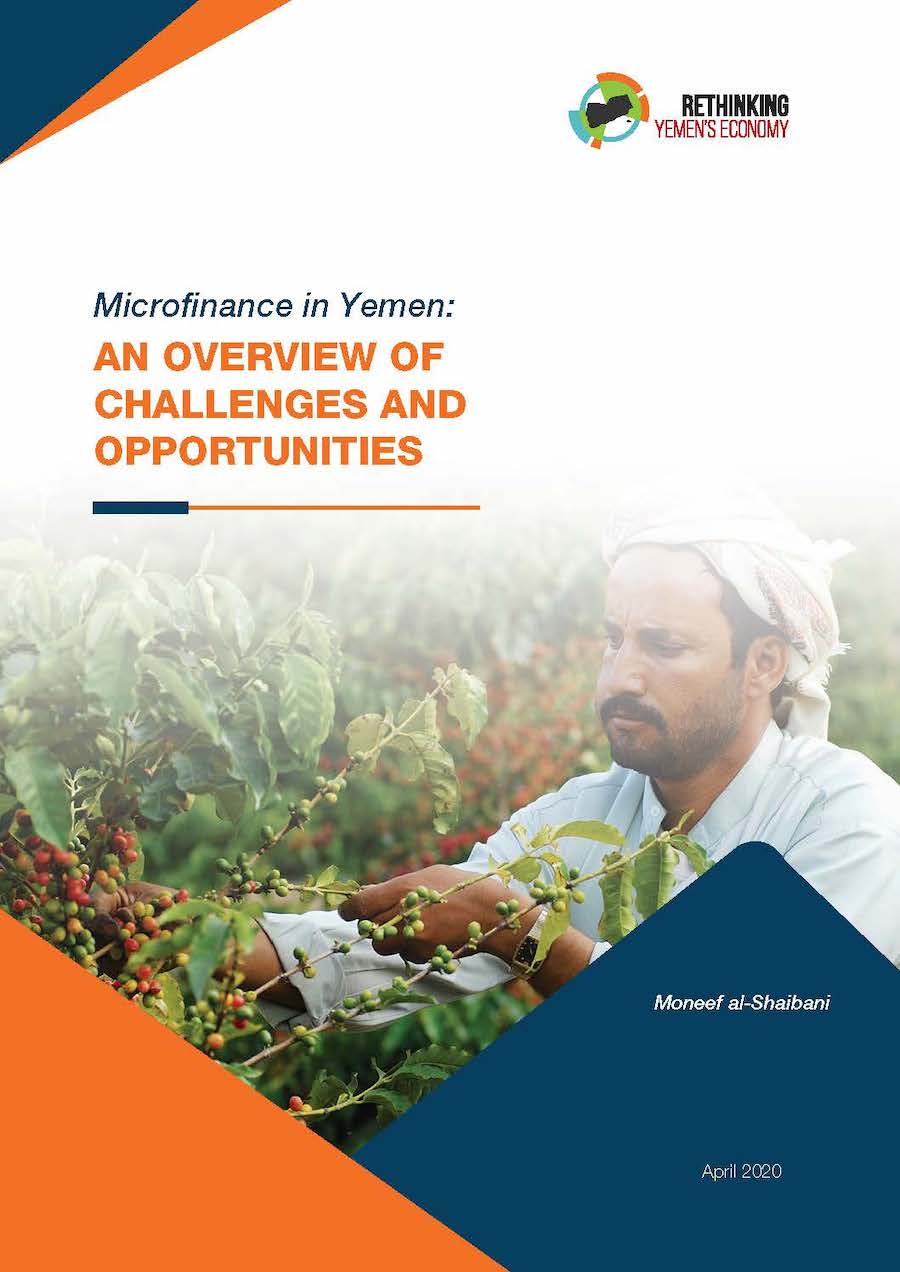



![China’s Strategy in the Persian Gulf. A Balancing Act between Riyadh and Tehran [in German]](https://carpo-bonn.org/wp-content/uploads/2020/04/15_carpo_brief_Cover_900.jpg)
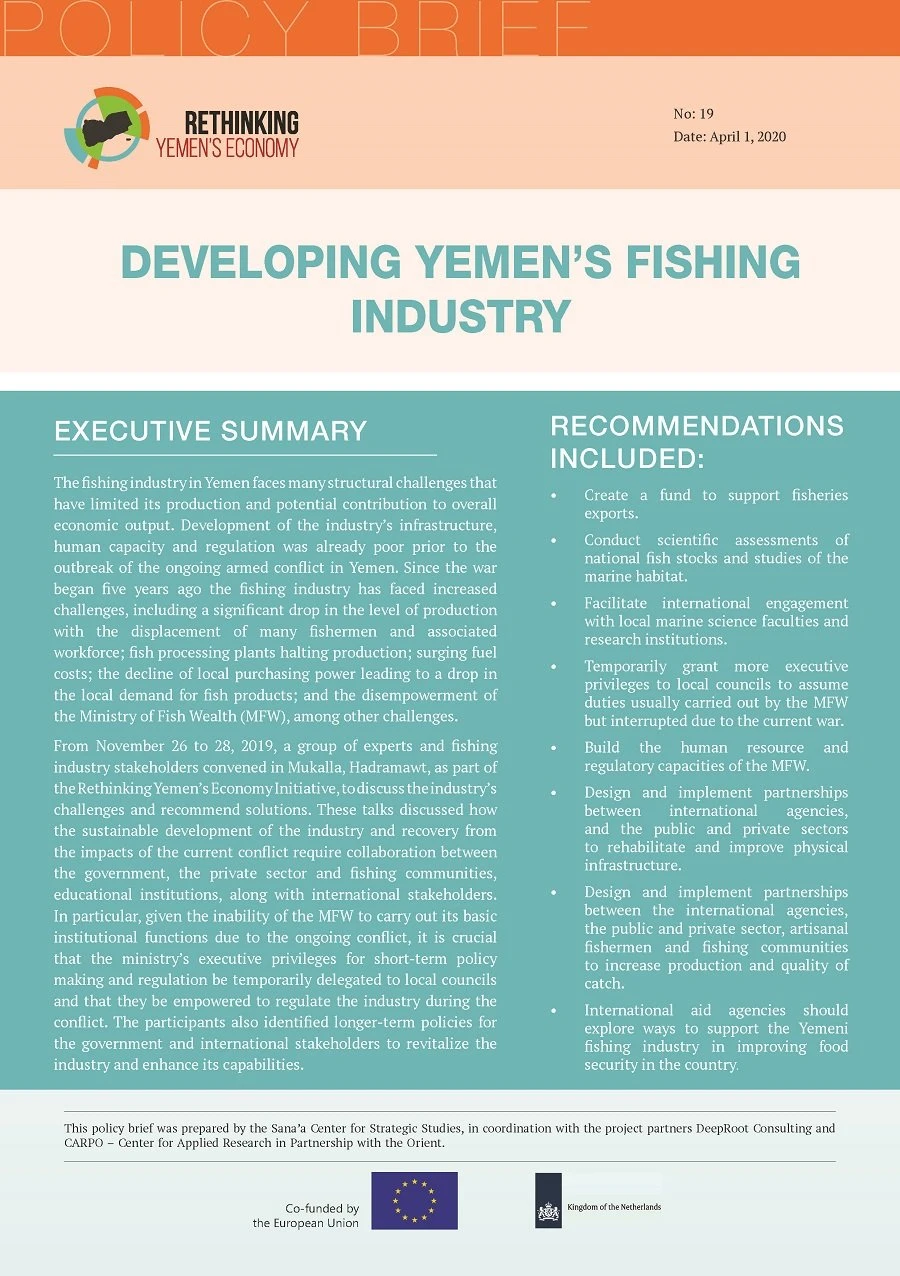

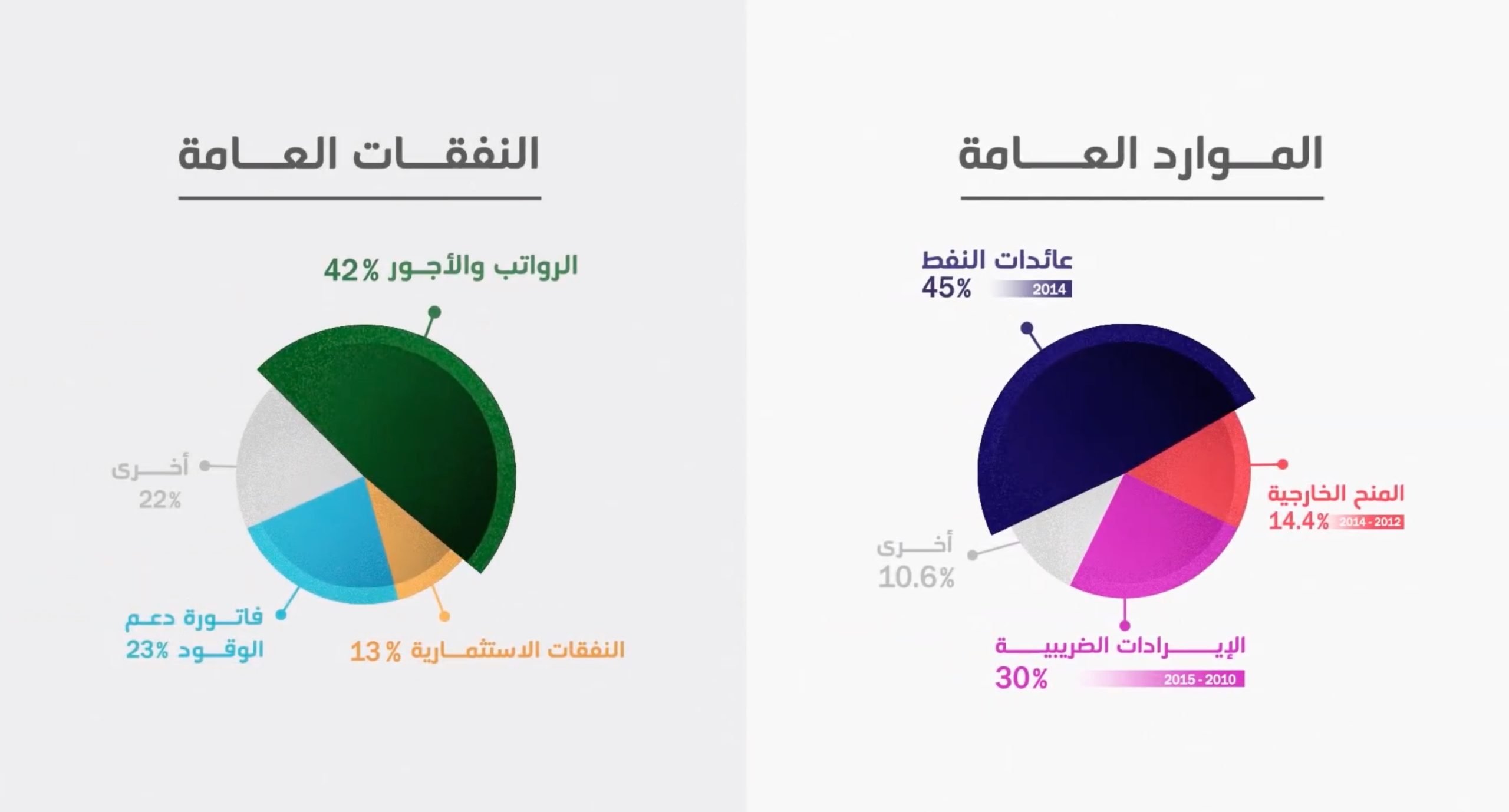


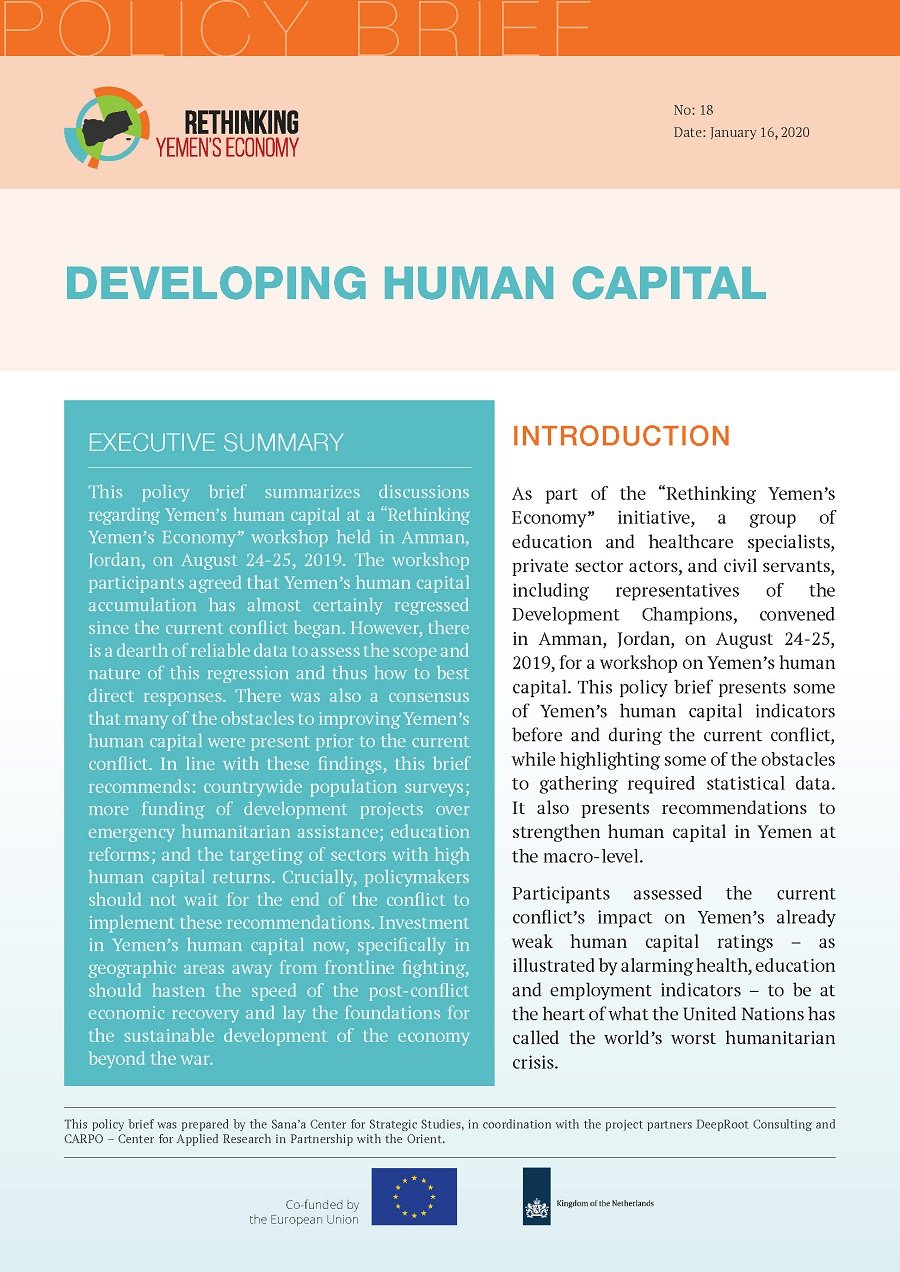

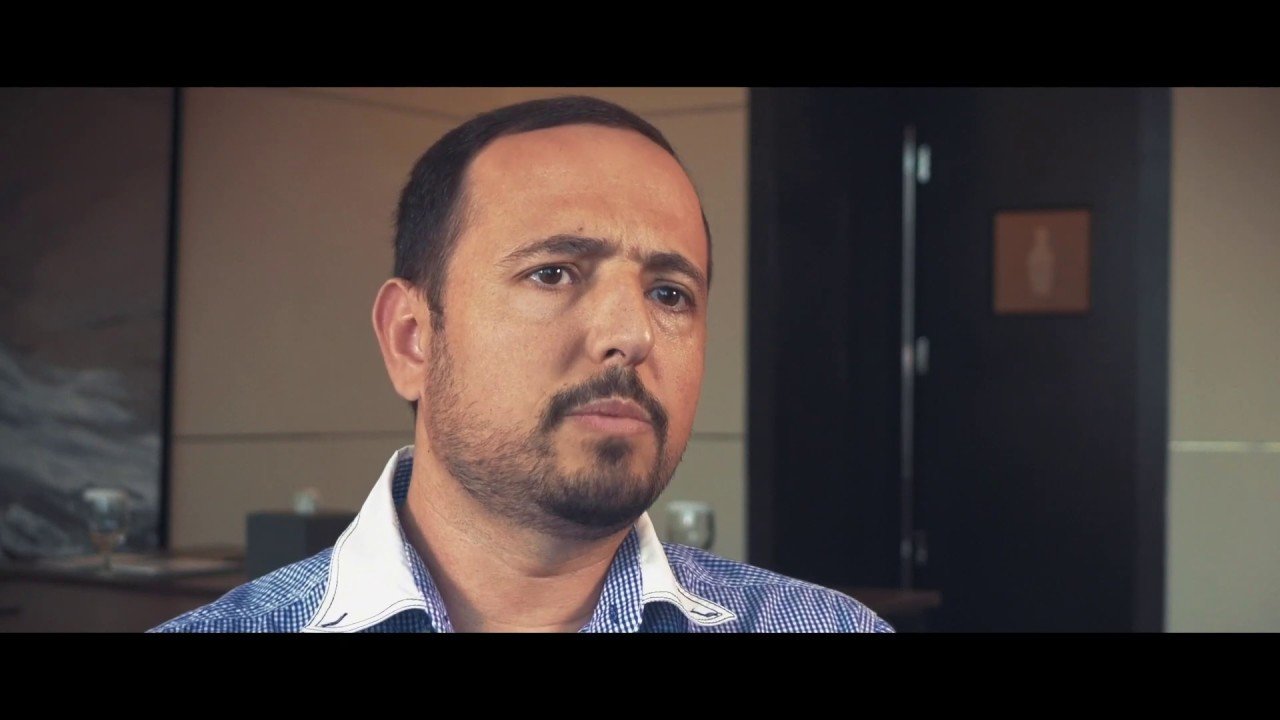
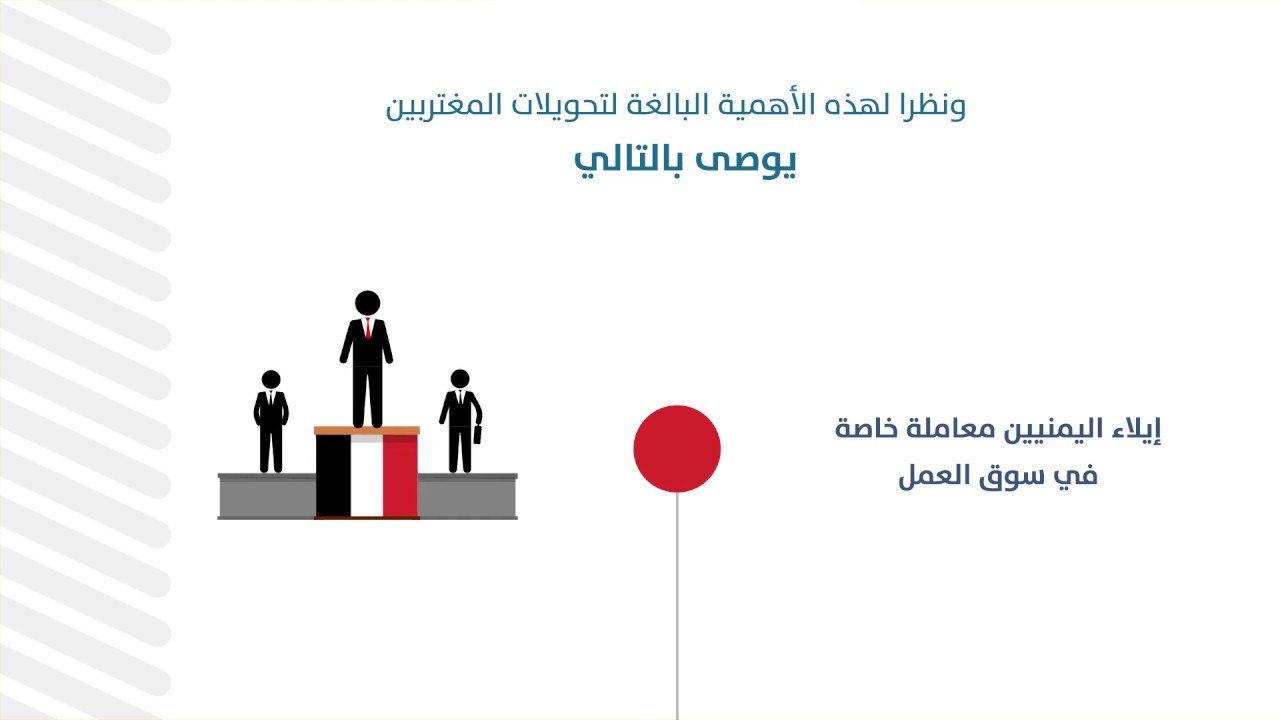
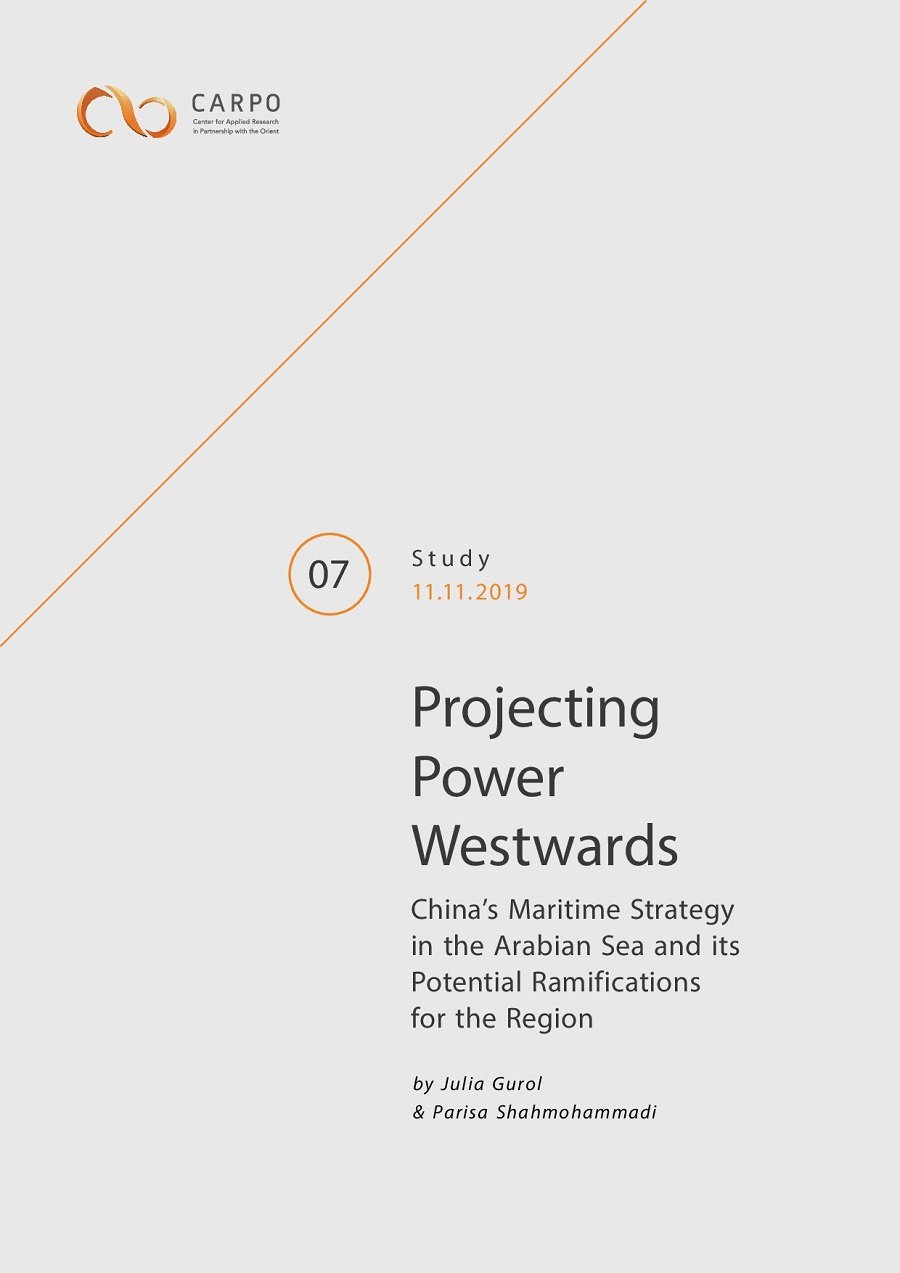
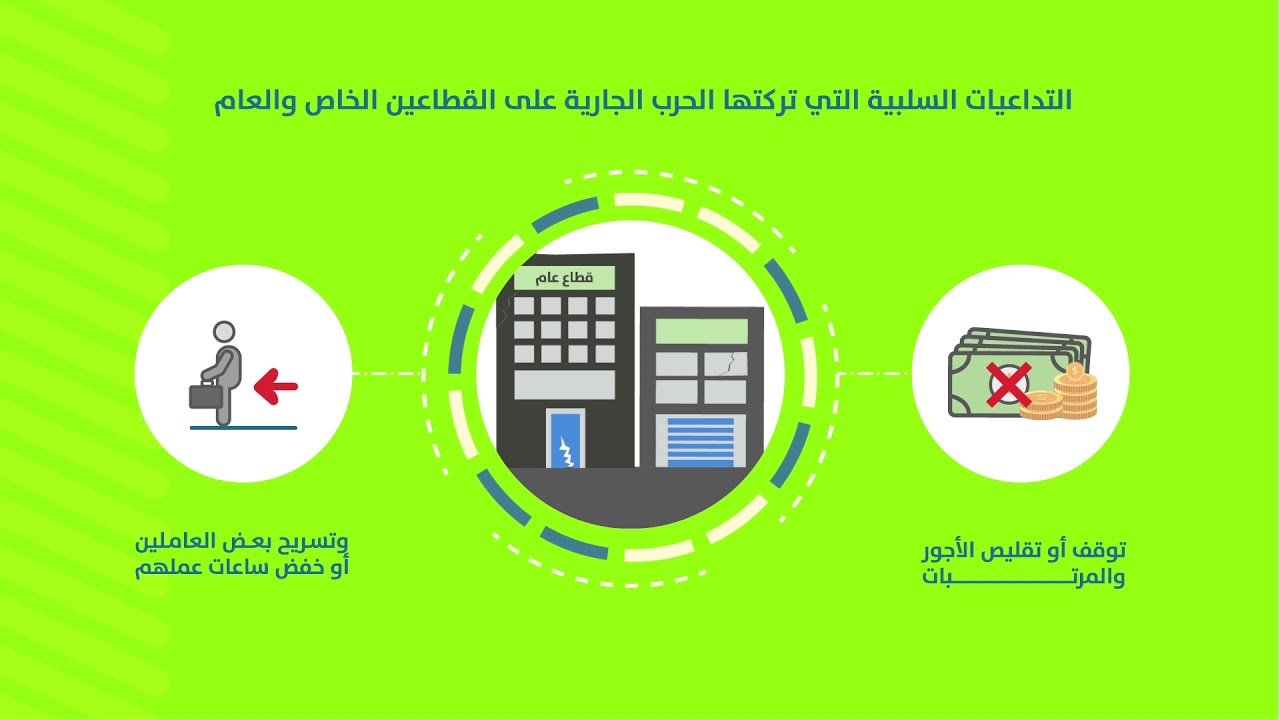
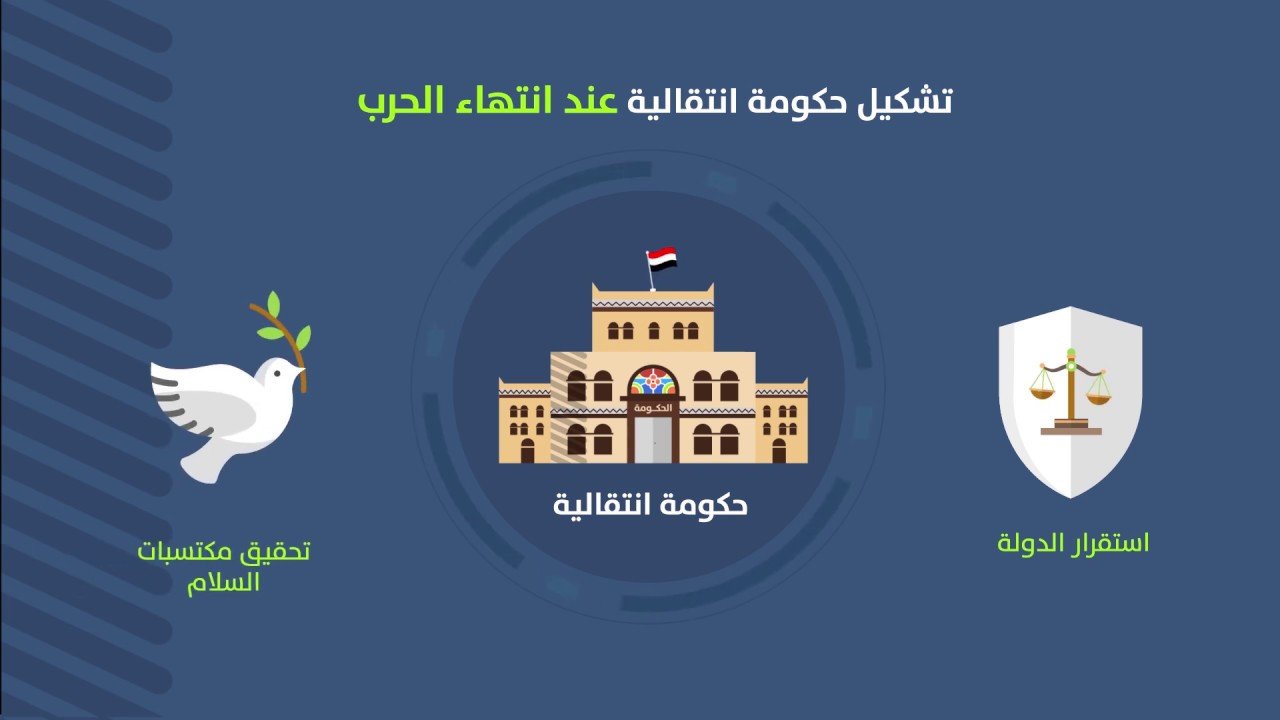

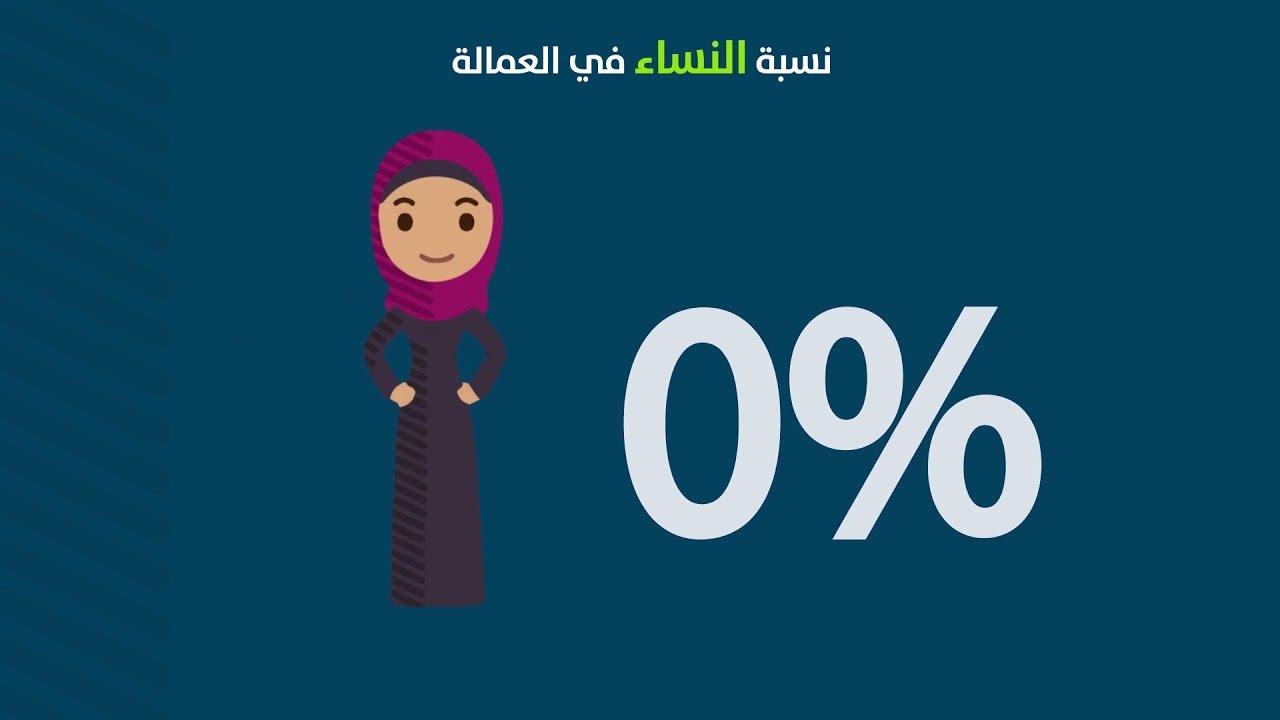
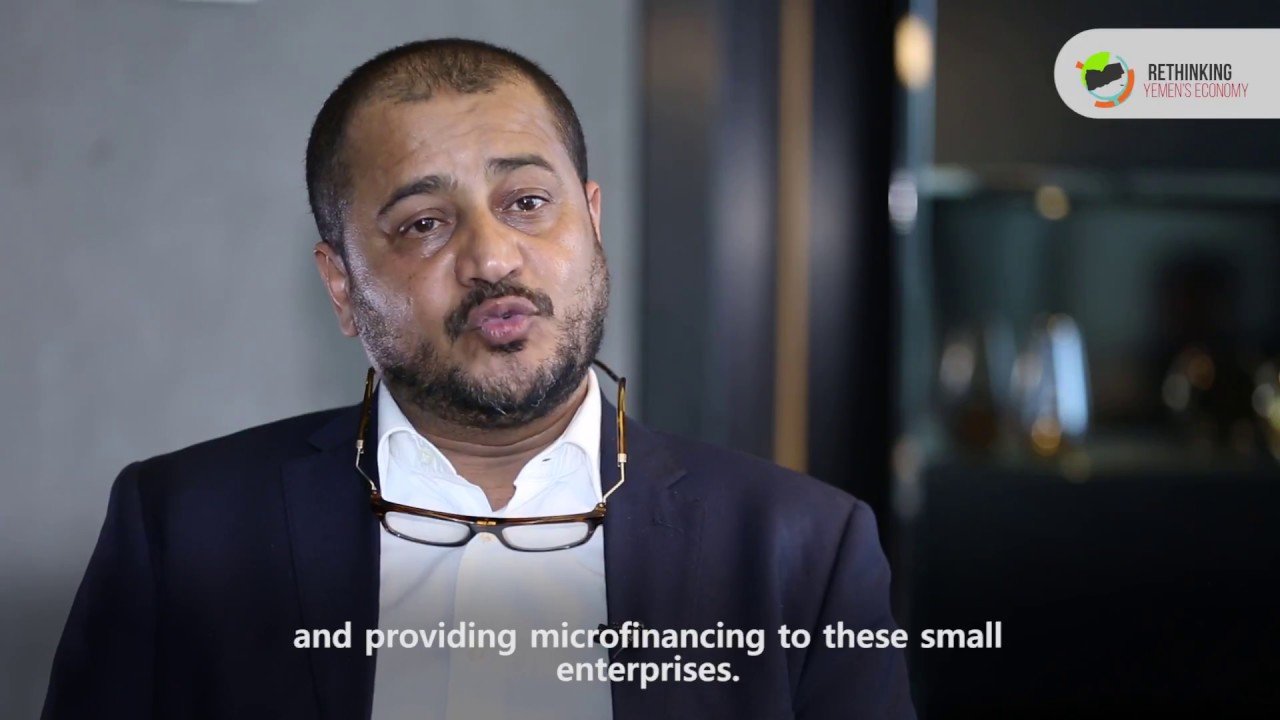
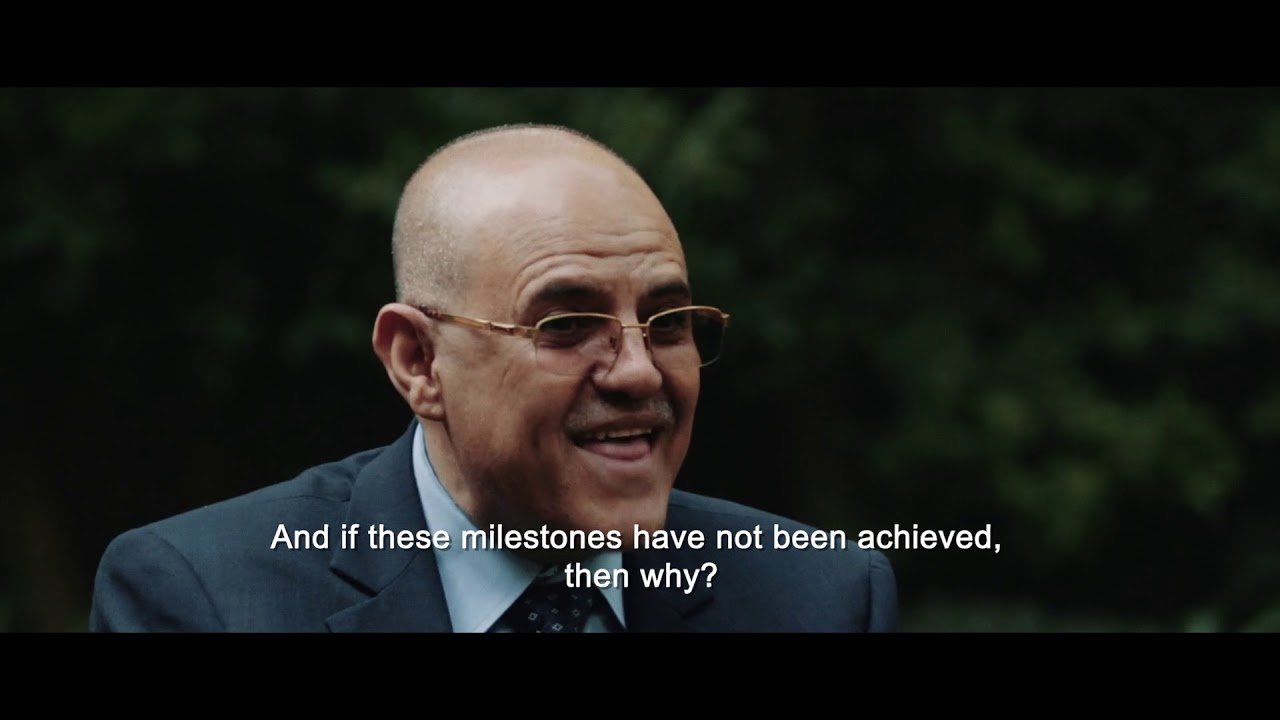
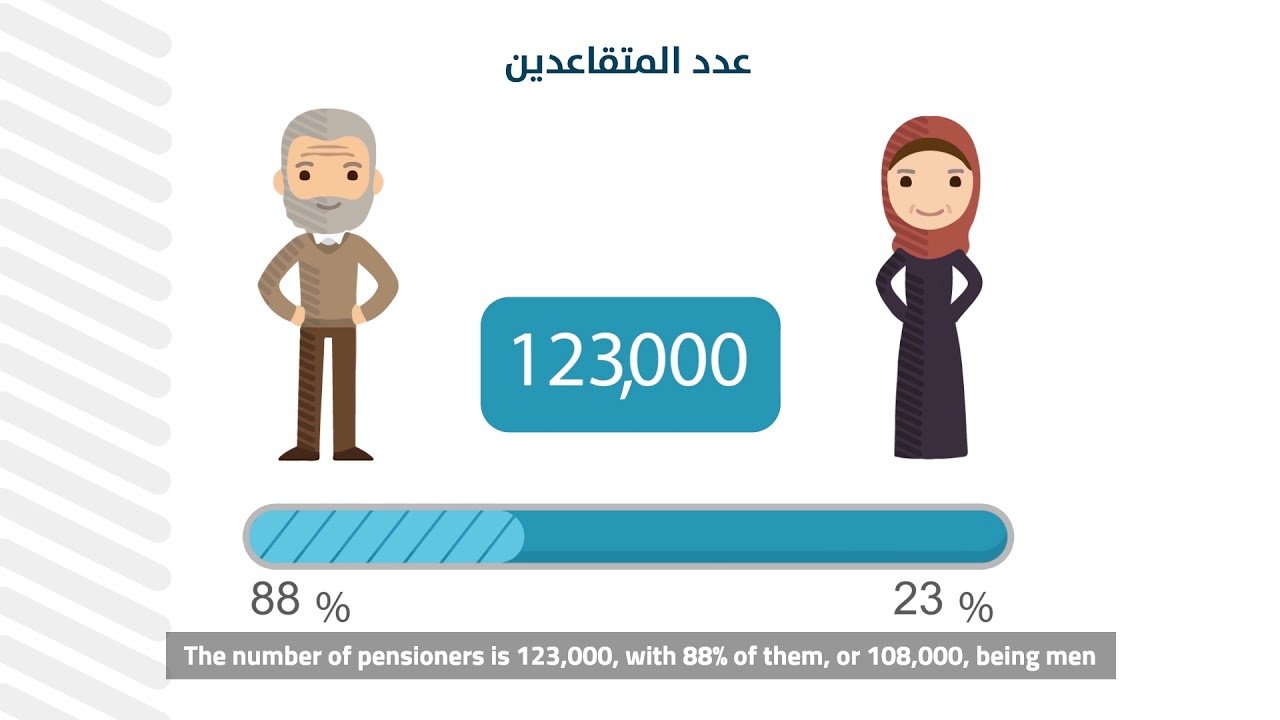
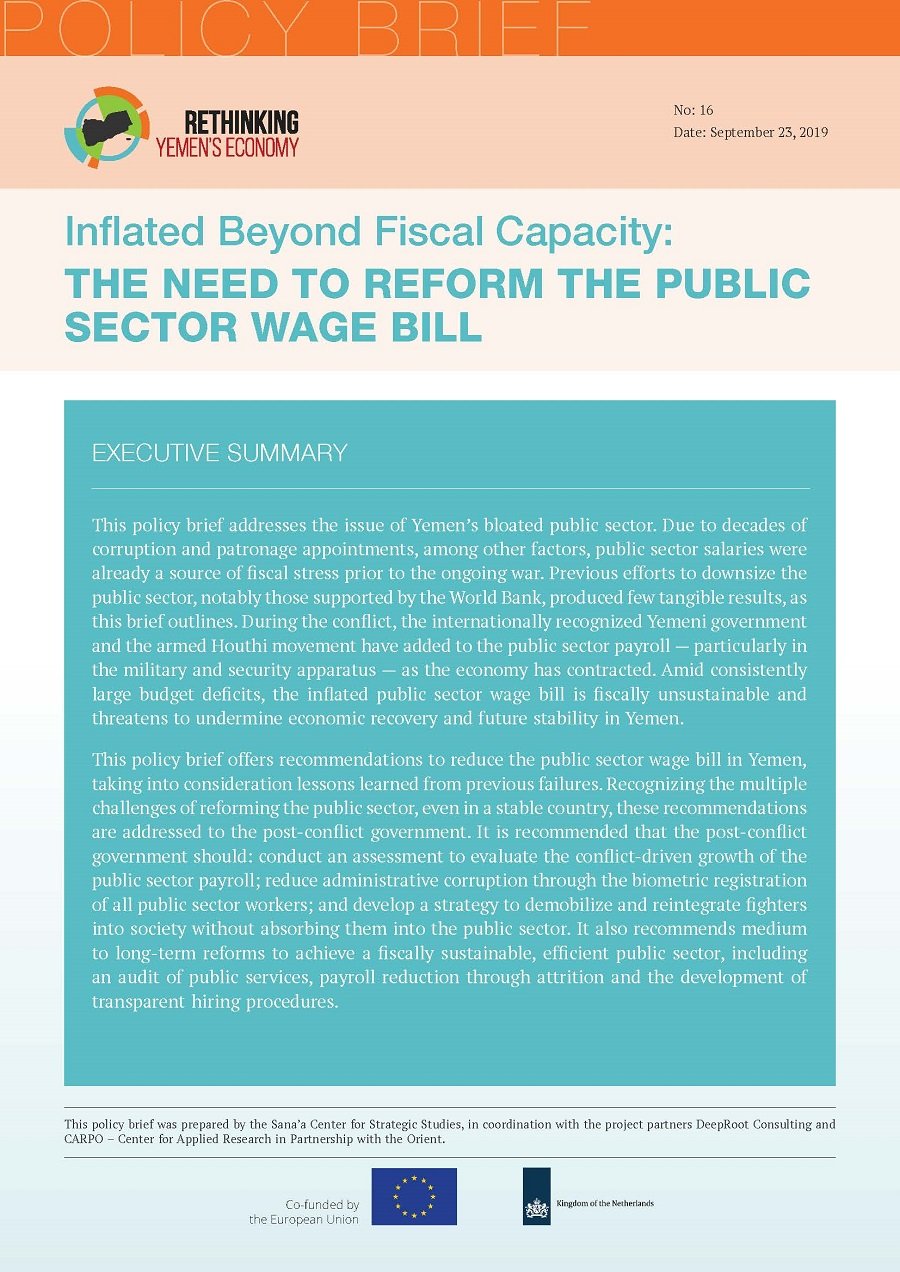
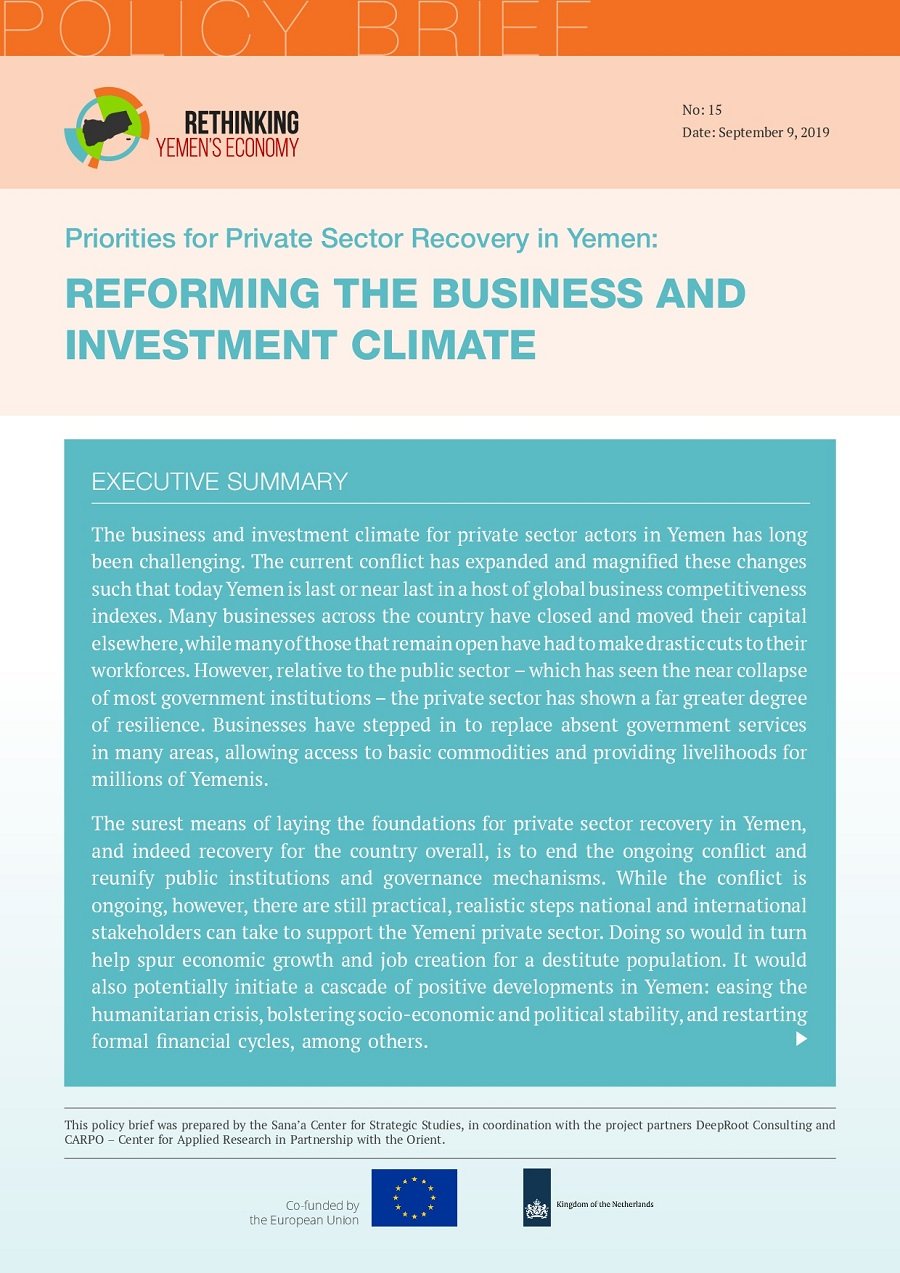
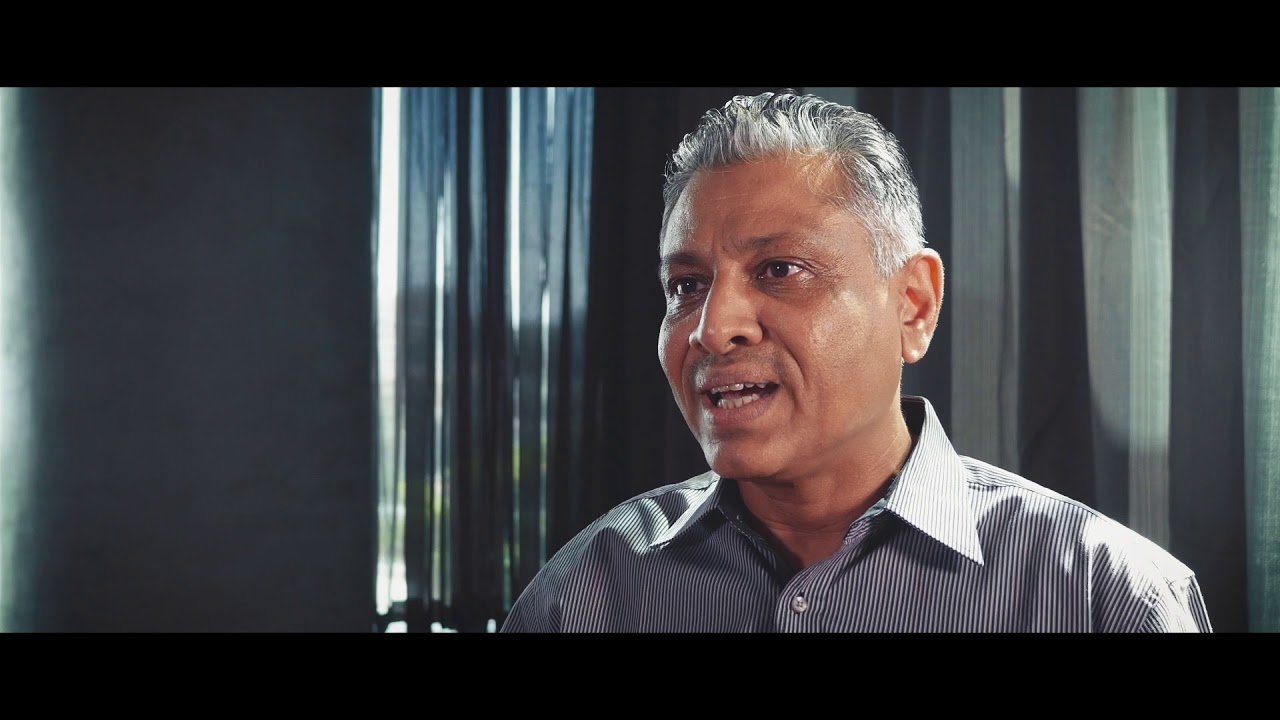
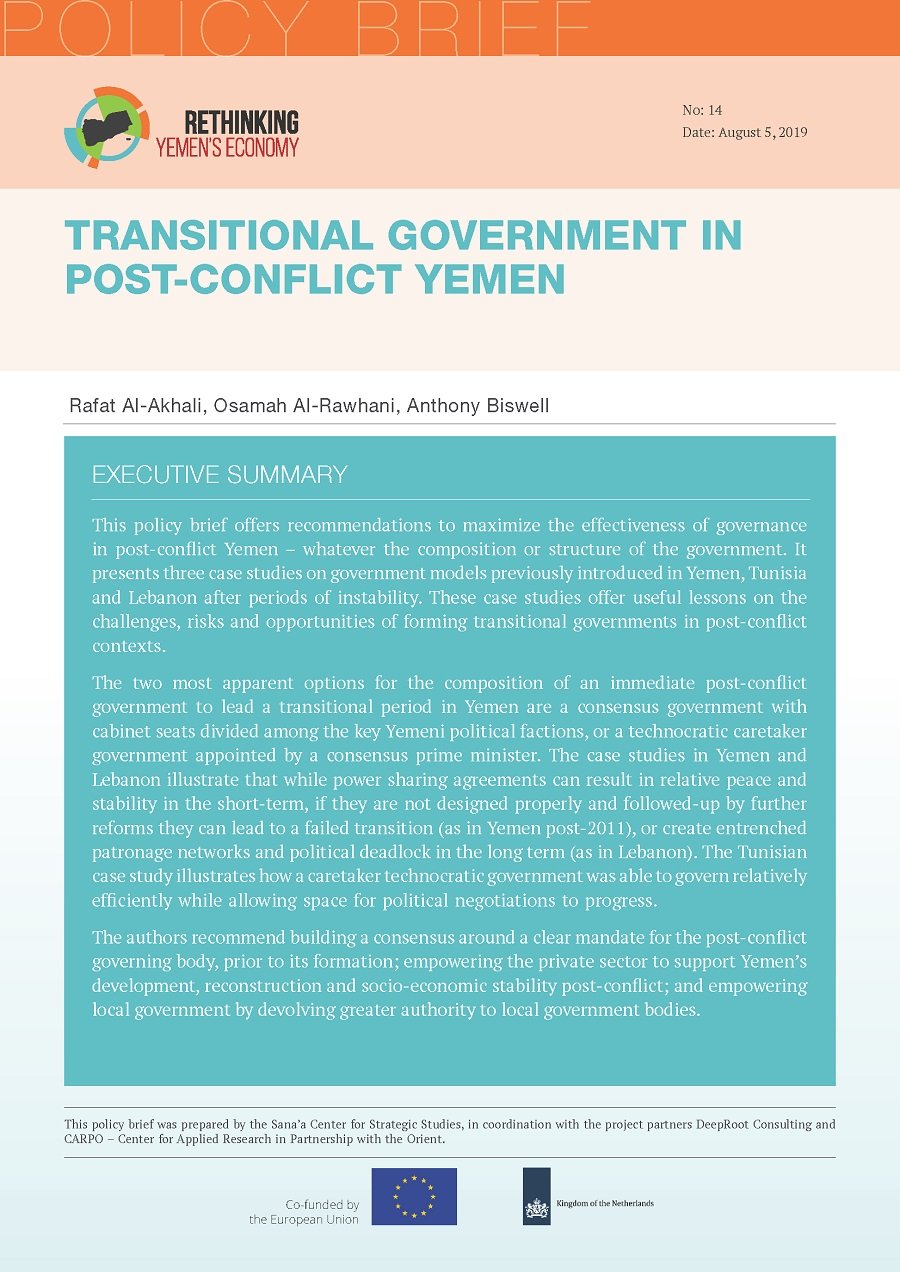
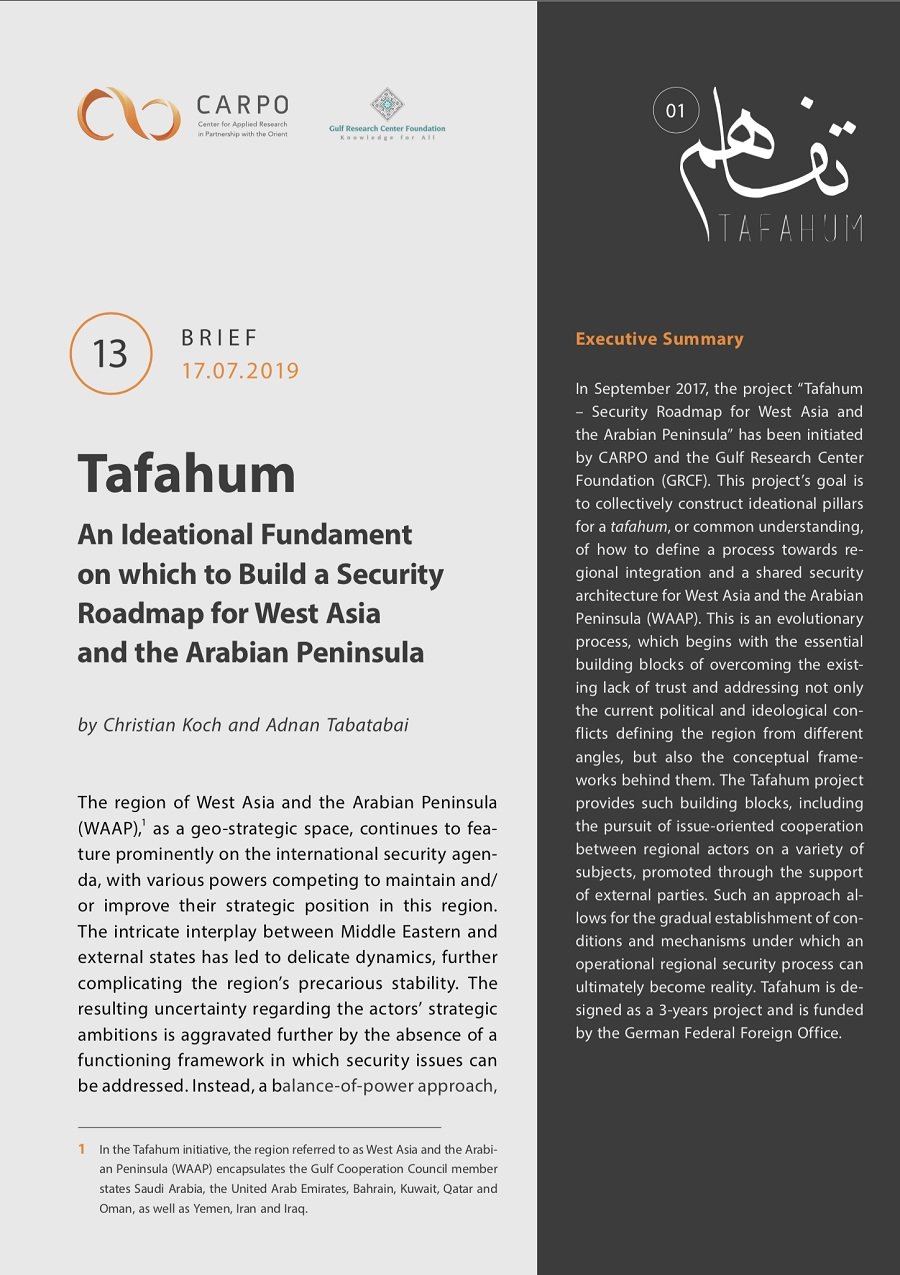
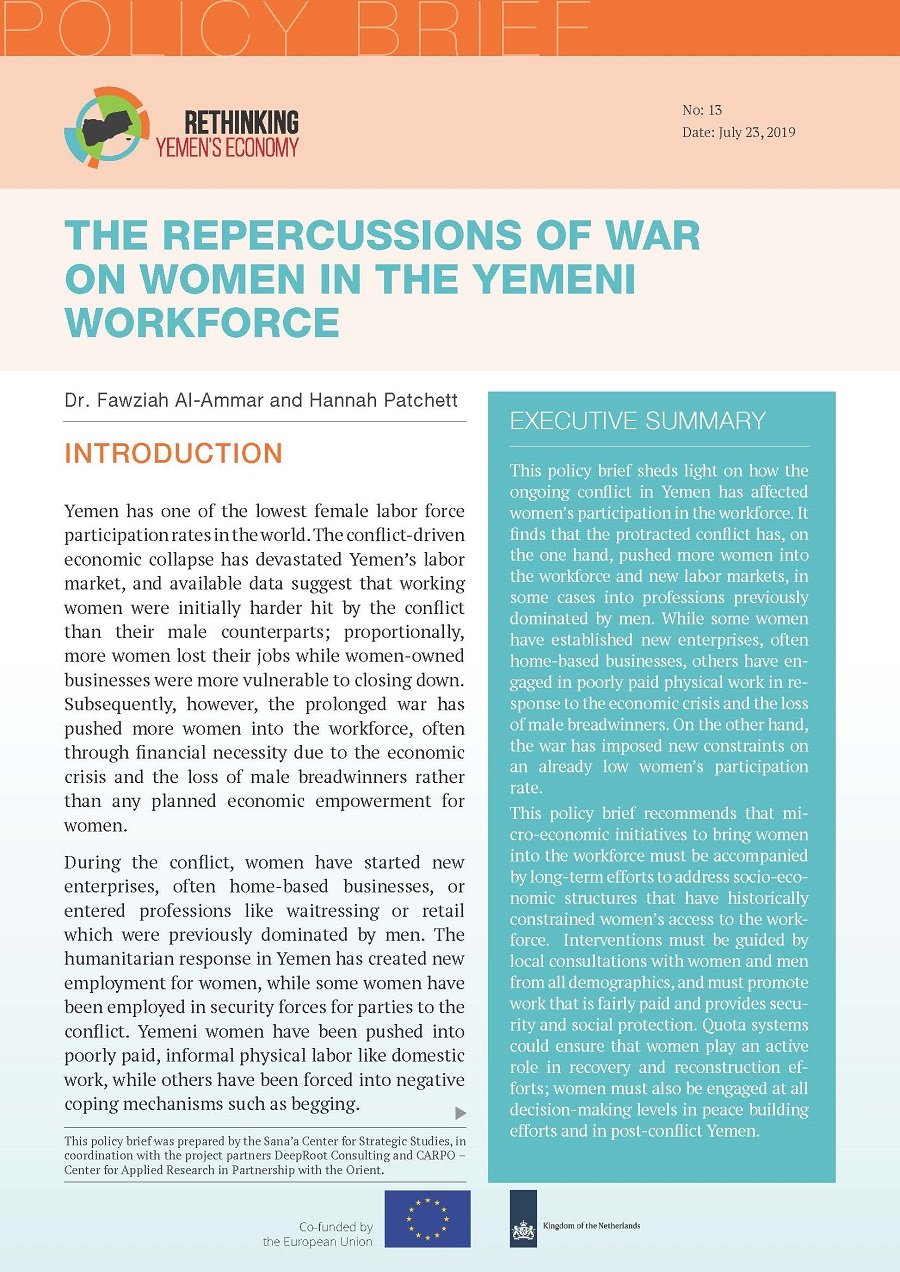
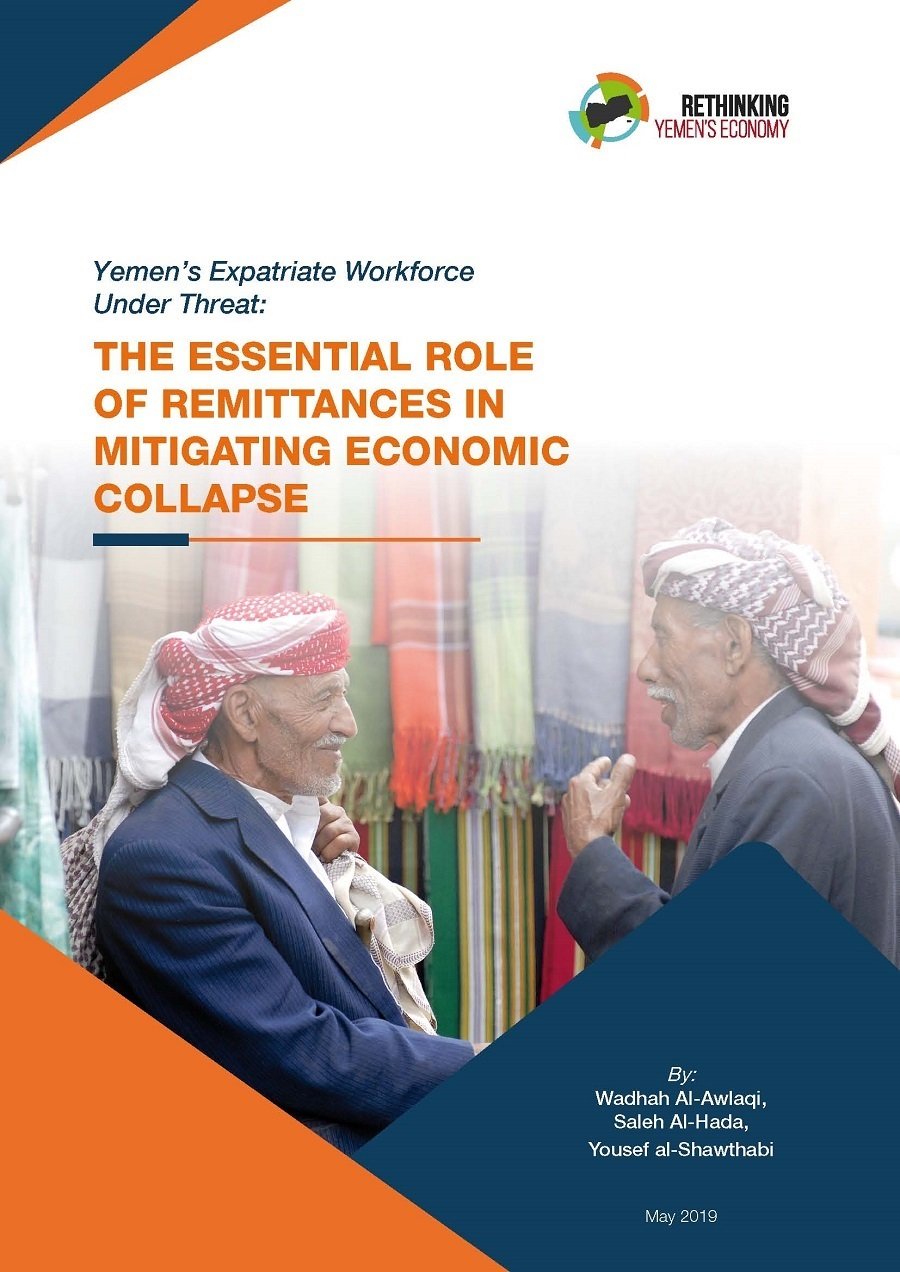

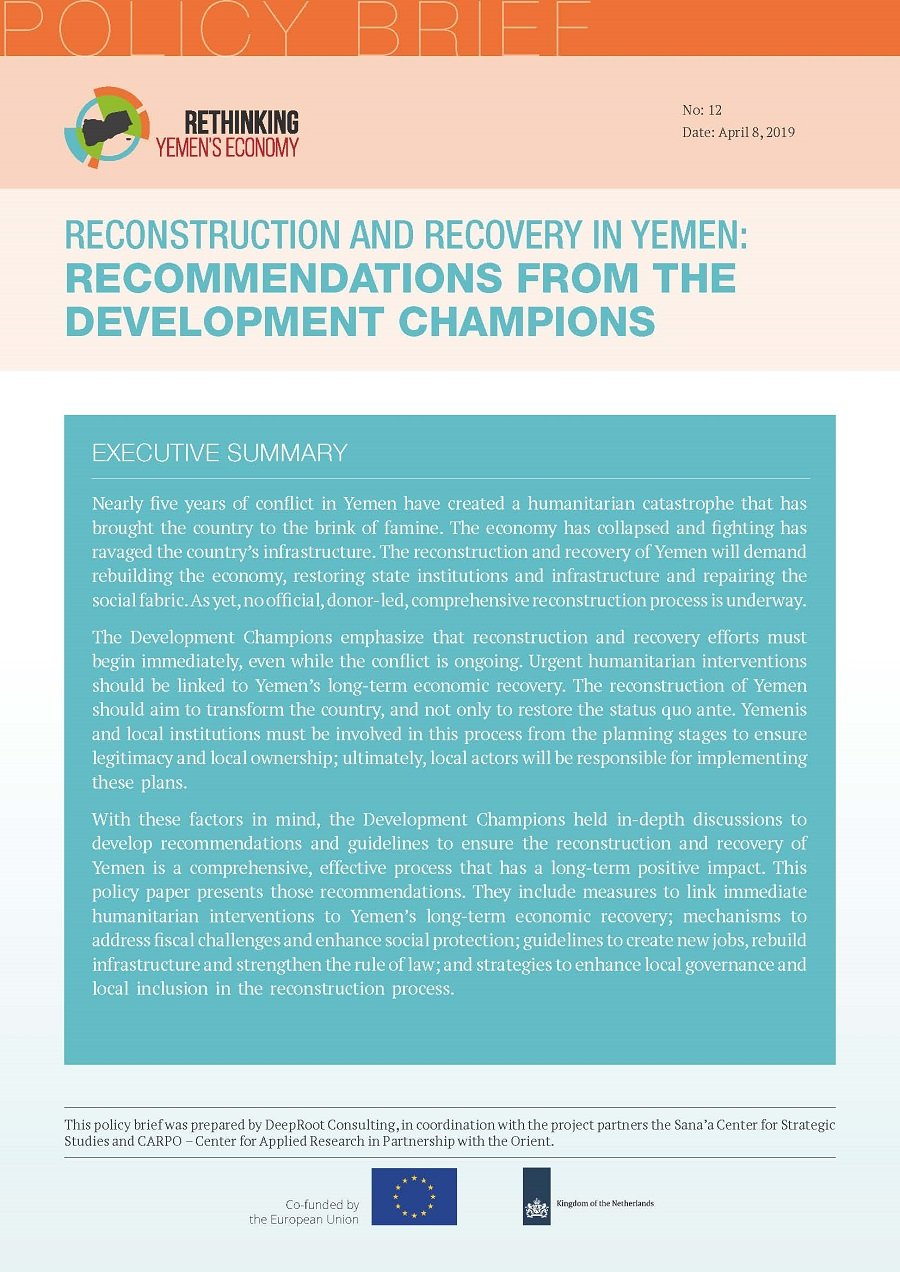
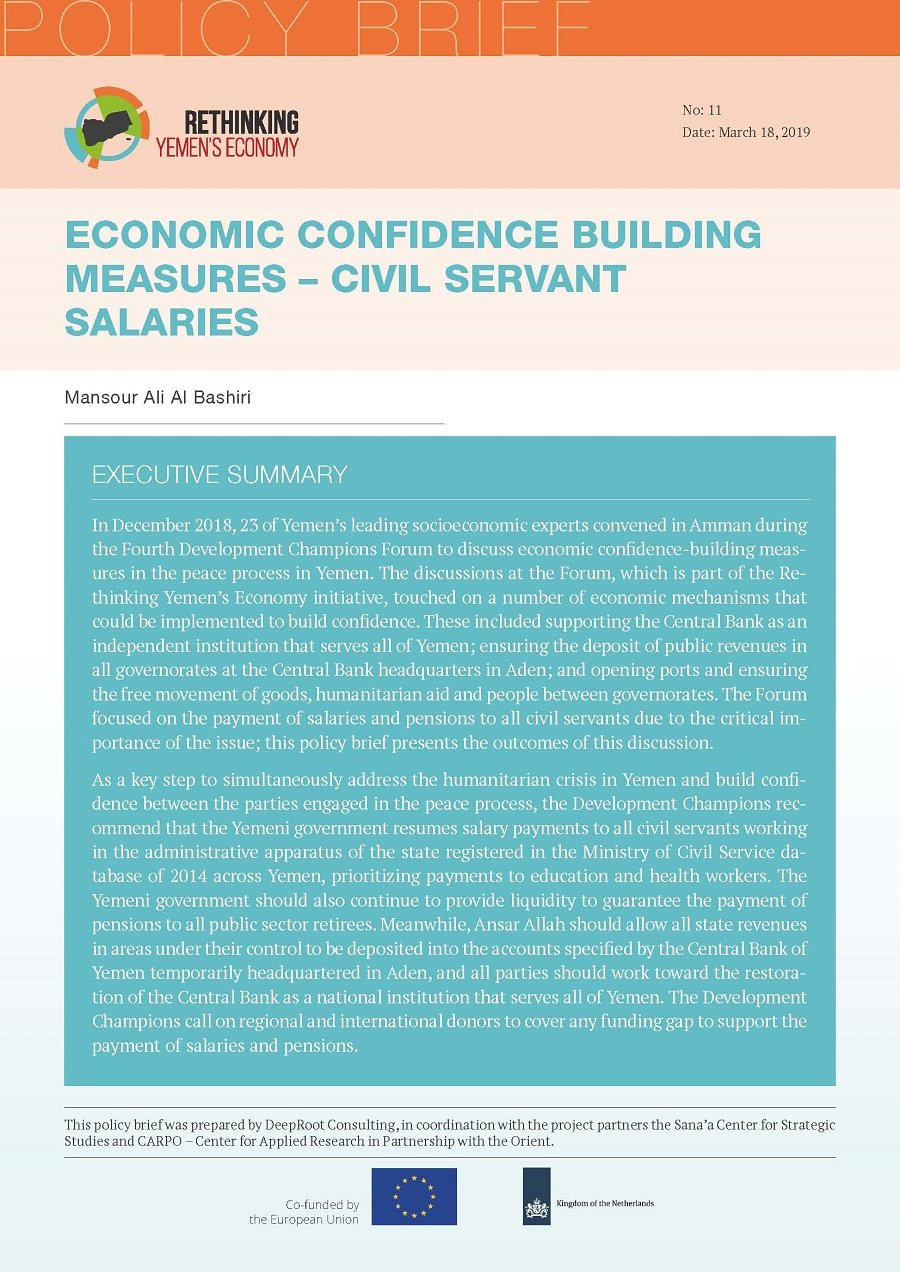
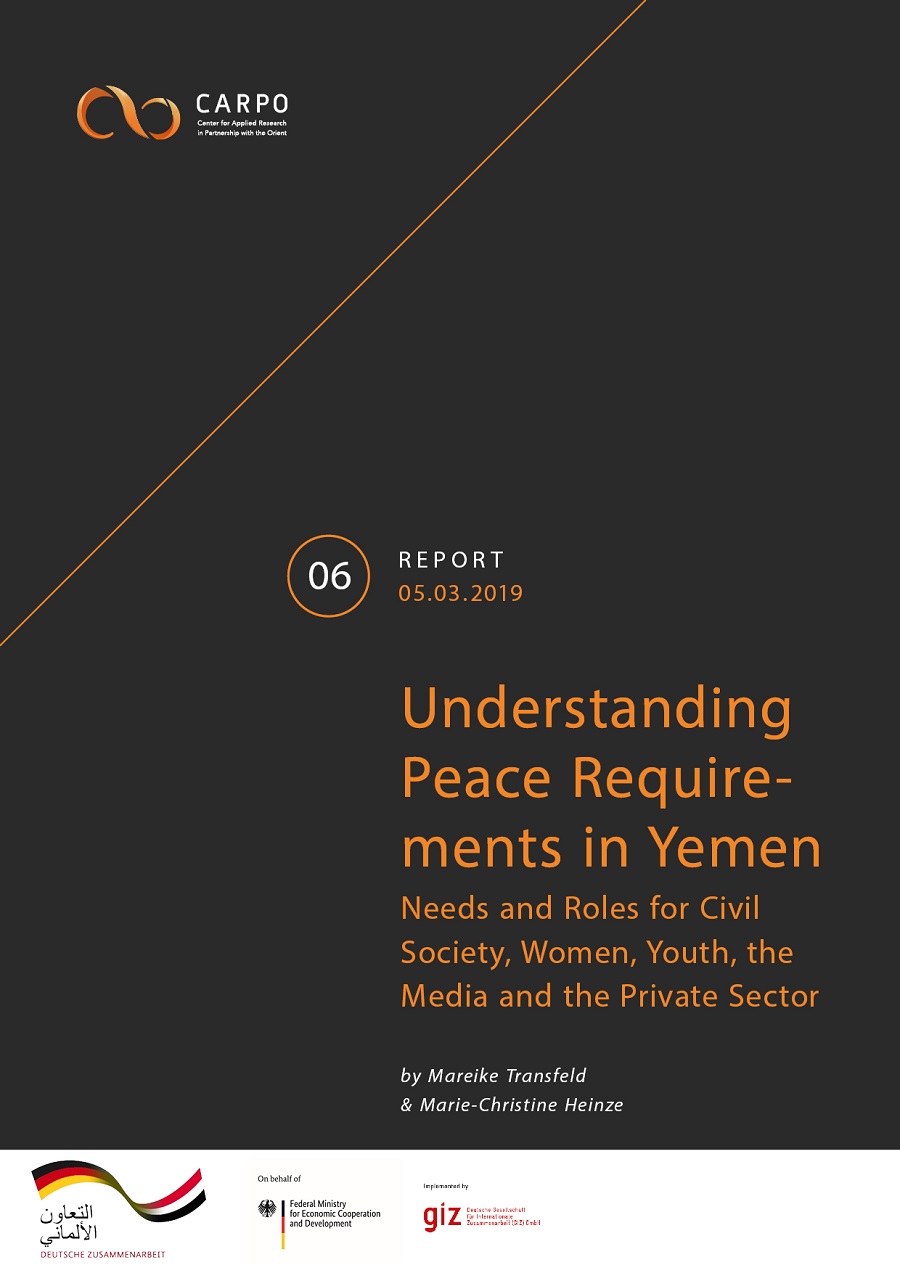
![Back to Crisis Mode. Iran’s Quest to Manage Internal Crises and External Pressures [in German]](https://carpo-bonn.org/wp-content/uploads/2022/01/carpo_policy_report_05_900.jpg)
